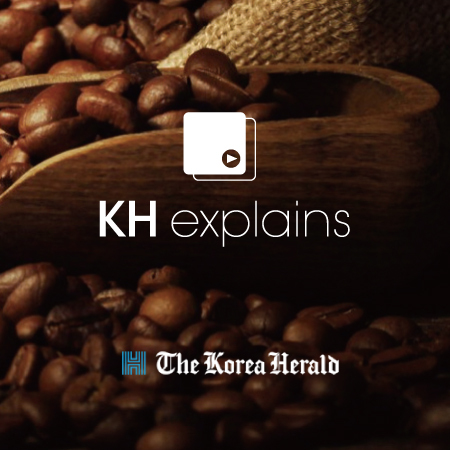
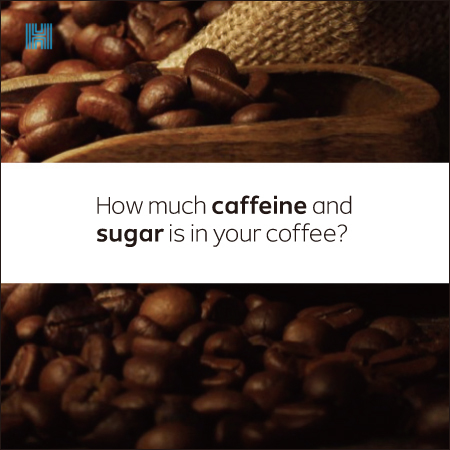
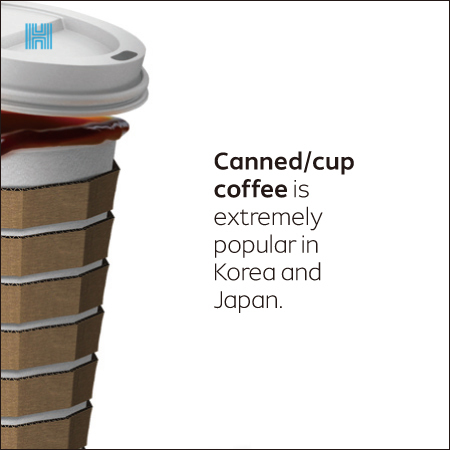
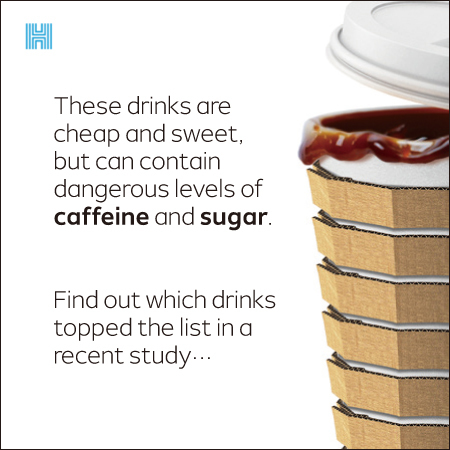
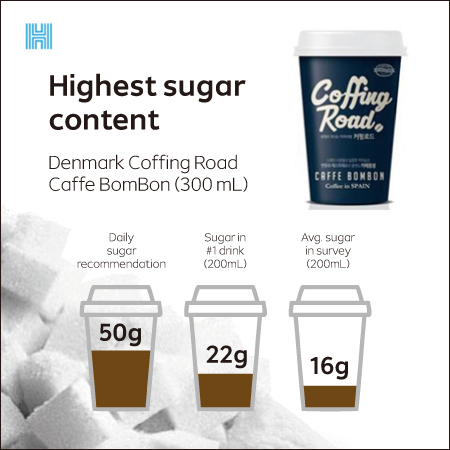
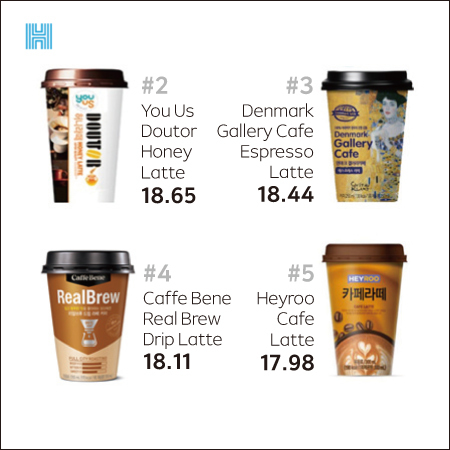
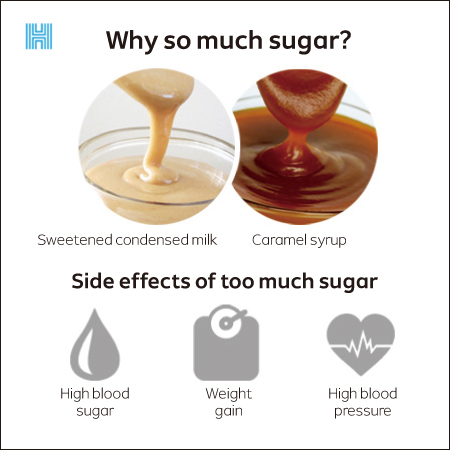
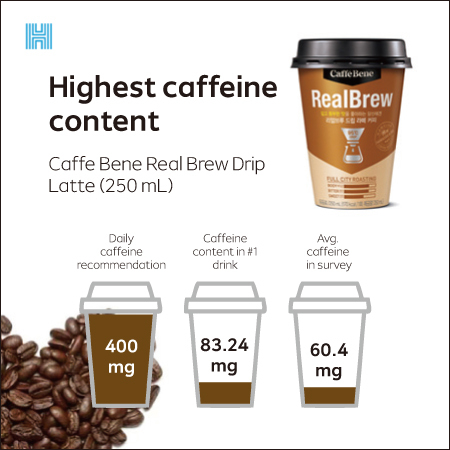
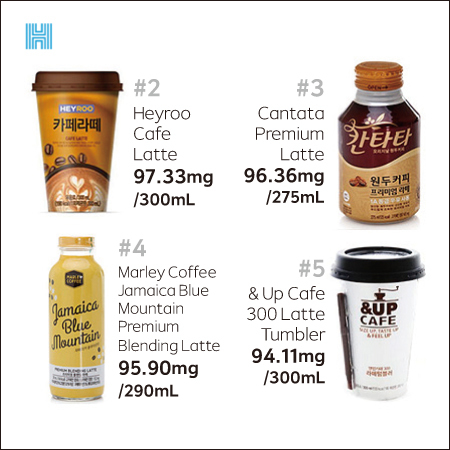
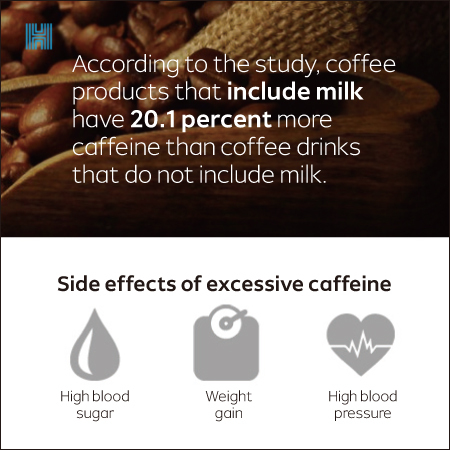
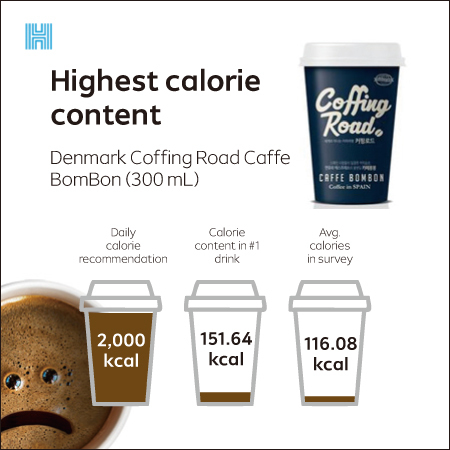
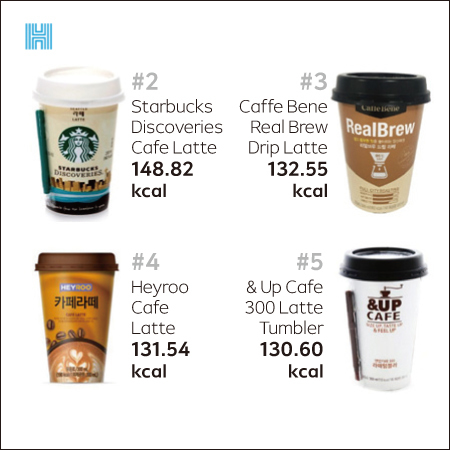
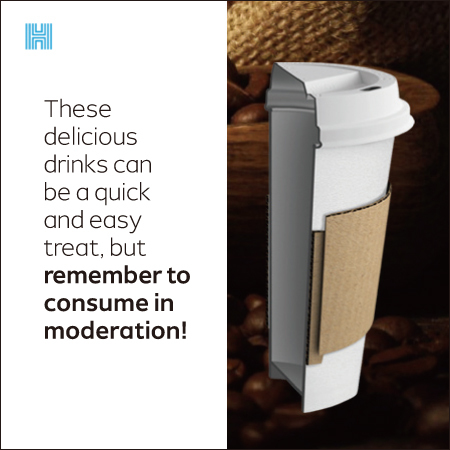
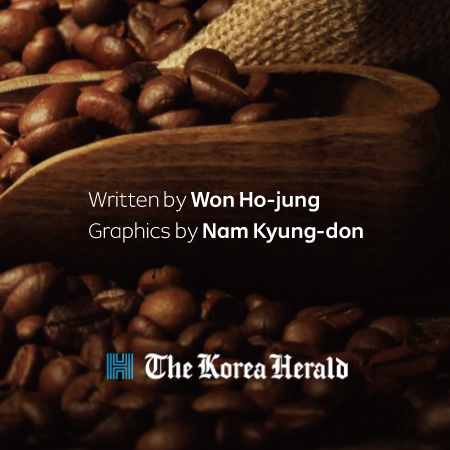
Sweet and packing a caffeine punch, ready-to-drink coffee products lining shelves at convenience stores and supermarkets have become a popular and cheaper alternative to high-priced espresso.
The quickly rising sales of these ready-to-drink products have even spurred traditional coffee brands including Starbucks and Caffe Bene to launch RTD offerings in convenience stores.
According to convenience store chain 7-Eleven, sales of RTD coffees in both cup and can packaging in the first quarter rose by 9.1 percent on-year in 2015, by 12.6 percent in 2016, and 6.4 percent in 2017.
However, according to a survey conducted by a consumer group, these RTD coffees can come with a hefty dose of caffeine and sugar -- enough to be harmful when consumed in large quantities.
A total of 19 different can and cup latte products currently sold in convenience stores contained an average of 21.46 grams of sugar, nearly half of the World Health Organization’s suggested sugar intake of 50 grams a day.
The product with the highest sugar content was Denmark Coffing Road Caffe Bombon, with high sugar content coming from sweetened condensed milk and caramel syrup. The product also contained the highest calorie content in the survey, at 151.64 calories per 200 milliliters.
Consuming high doses of sugar can lead to side effects such as weight gain, high blood pressure and high blood sugar.
Although all of the products surveyed were coffee products, they showed a wide variety in their caffeine content, from 38.82 milligrams to 104.05 milligrams per 200 milliliters.
The product with the highest level of caffeine was Caffe Bene Real Brew Drip with 83.24 milligrams. The survey showed that products that were categorized as dairy products, containing 4 percent or more of powdered milk, had 20.1 percent more caffeine than drinks that were categorized simply as coffee.
In order to avoid consuming too much sugar and caffeine through these types of products, Consumers Korea suggested that consumers read the labels on the products to determine nutritional content.
In particular, products that contain more than 0.15 milligrams of caffeine per milliliter are required to indicate that it is a high-caffeine drink on the label, the group noted.
Consumers Korea also warned strongly against the consumption of these products by teenagers. “The caffeine content in some of the coffee drinks contained more caffeine than the recommended daily dose for a teenager that weights 50 kilograms,” the group wrote in its report, noting that excessive caffeine can lead to insomnia and hypersensitivity.
By Won Ho-jung (
hjwon@heraldcorp.com)





















![[Today’s K-pop] Blackpink’s Jennie, Lisa invited to Coachella as solo acts](http://res.heraldm.com/phpwas/restmb_idxmake.php?idx=644&simg=/content/image/2024/11/21/20241121050099_0.jpg)